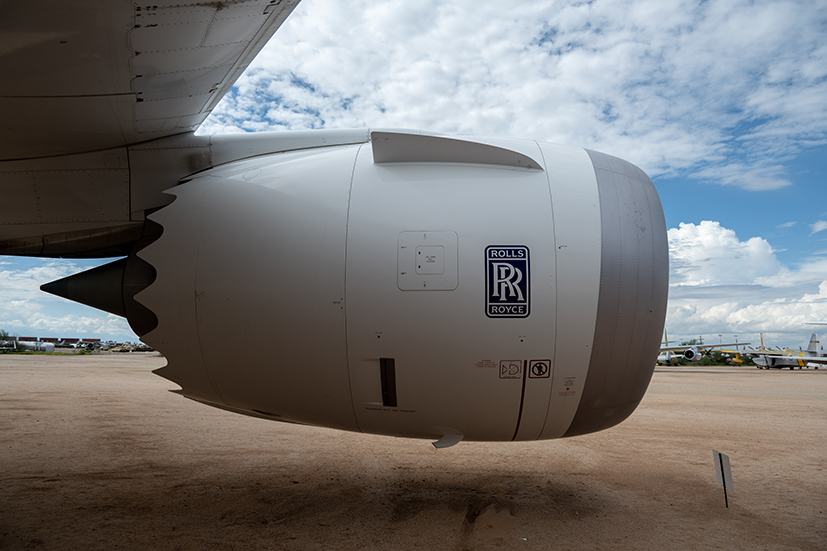Rolls-Royce is leading a new project to find smarter ways of using sustainable aviation fuel (SAF) to increase its effectiveness and role in reducing non-CO2 emissions, primarily those associated with contrails – climate-damaging jet condensation trails made of ice particles formed by aircraft that can trap heat in the atmosphere.
Co-funded through the Non-CO2 Programme, part of the ATI Programme, the Quantifying Reduction in Thermal Contrails by Optimising SAF (QRITOS) project unites Rolls-Royce, British Airways, Imperial College London and Heathrow.
The benefits of SAF for reducing end-to-end CO2 emissions from fuel are well understood, with SAF set to play a key role in aviation’s decarbonisation journey. However, in-flight measurements behind aircraft have also shown SAF’s potential to reduce the number of ice crystals in contrails and therefore the potential climate impact of these thin clouds of ice particles that can form behind aircraft.
The amount of SAF currently available is only a small proportion of aviation’s overall fuel requirements. It is typically mixed with conventional fossil fuel, resulting in wide-scale deployment at very low SAF blend ratios. However, SAF use is expected to increase in the UK with the introduction of the SAF mandate which came into force at the start of the year and will see 10% of SAF in the UK fuel in 2030 and 22% in 2040.
Constantly changing weather means different flights cause contrails at different times and locations, yet most of the potential climate impact comes from only a small proportion of flights. This creates an opportunity for smart SAF use targeting those flights expected to form persistent contrails.
The QRITOS project aims to demonstrate the feasibility of this approach. It will do this by combining data from British Airways flight trials, advanced modelling and satellite observations to monitor contrail formation following this targeted SAF usage.
The project aims to show that particular flights for SAF can be prioritised, focusing on where it can deliver the greatest environmental benefit and maximise the effectiveness of the current levels of supply.
The funding programme is delivered by the Aerospace Technology Institute, Department for Business and Trade (DBT) and Innovate UK, in partnership with the Department for Transport (DfT) and the Natural Environment Research Council (NERC).
Concluding in April 2027, the two-year project will also enhance forecasting methods, advance understanding and modelling of contrail formation, and develop verification methods based on satellite data.
Alan Newby, research & technology director at Rolls-Royce, said: “SAF will not only play a vital role in decarbonising aviation, but has also been shown to reduce certain non-CO2 emissions. This project will demonstrate smarter ways of using SAF which could unlock additional value through reducing non-CO2 climate effects as well.”
Air bp will provide SAF technical expertise to the project team.



